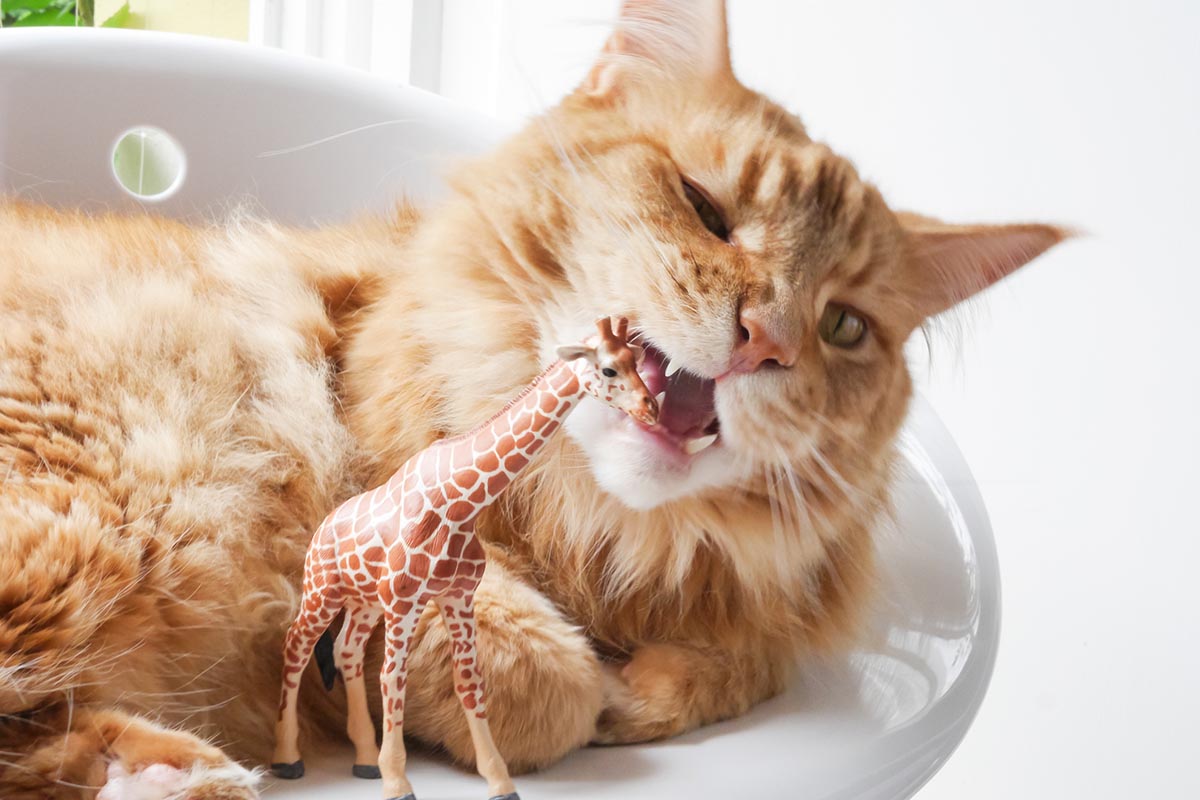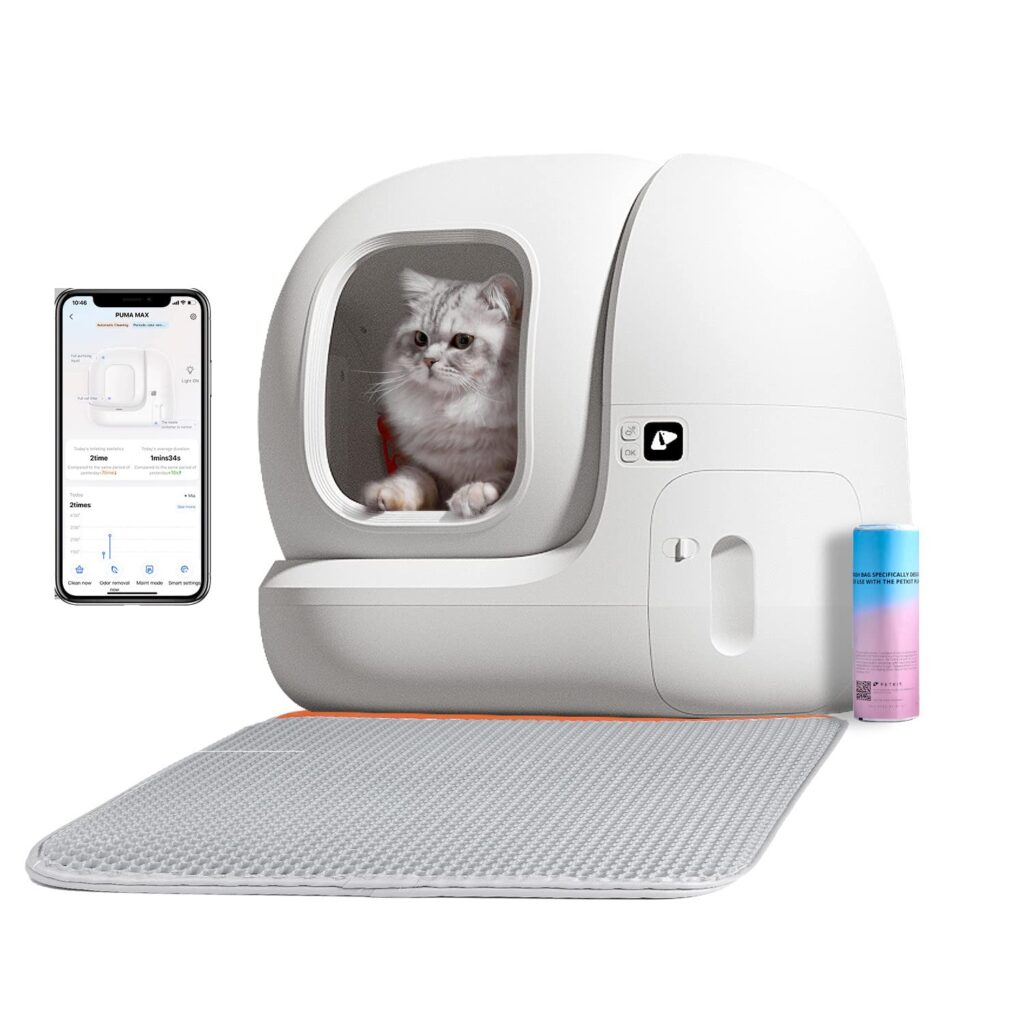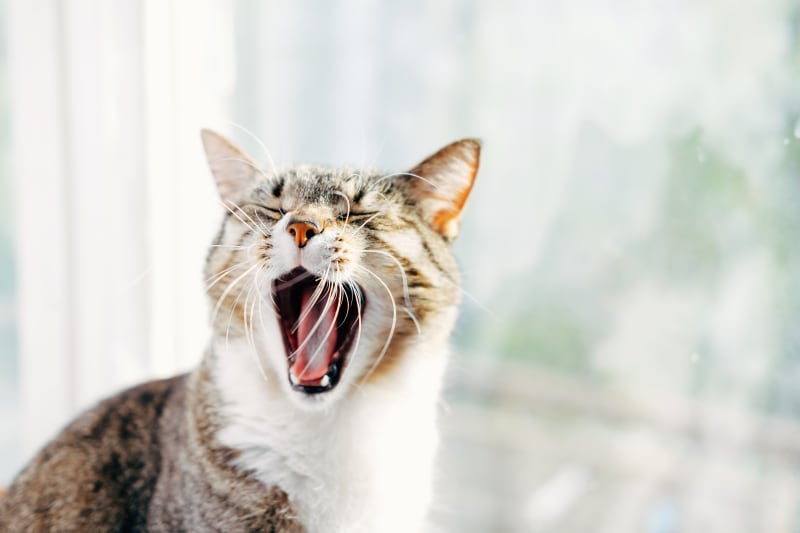If your cat has eaten plastic, it is important to seek veterinary help immediately. Plastic can cause gastrointestinal blockages that can be life-threatening to your pet.
Contents
- 1 Understanding The Risks Involved
- 2 Signs Your Cat May Have Ingested Plastic
- 3 Immediate Steps To Take If Your Cat Eats Plastic
- 4 When To Seek Veterinary Assistance
- 5 Home Remedies And Treatment Options
- 6 Preventive Measures To Protect Your Cat
- 7 Frequently Asked Questions Of Help, My Cat Ate Plastic! What Should I Do?
- 8 Conclusion
Understanding The Risks Involved
Plastic ingestion can pose serious risks to your cat’s health. Understanding these risks and why cats are attracted to plastic is important in order to keep your feline friend safe. Cats may be attracted to plastic due to its texture and smell, resembling prey or food. However, it is crucial to remember that plastic is indigestible and can cause various hazards for your cat. Sharp edges or choking hazards can lead to injury or obstruction of the digestive tract. Common types of plastic that cats tend to eat include plastic bags, packaging materials, and small toy parts. If your cat has ingested plastic, it is essential to monitor their behavior and look out for any signs of distress, such as vomiting, diarrhea, or refusal to eat. If you suspect plastic ingestion, it is best to consult your veterinarian immediately for proper guidance and treatment.
Signs Your Cat May Have Ingested Plastic
It can be distressing to discover that your cat has ingested plastic, but it is important to take prompt action to ensure their safety and well-being. There are several signs that may indicate your cat has ingested plastic. Look out for changes in their behavior, such as increased irritability or lethargy. They may also exhibit physical symptoms, including vomiting, diarrhea, or difficulty passing stool.
If you suspect your cat has ingested plastic, it is vital to monitor their health closely. Plastic ingestion can lead to serious health issues, such as intestinal blockages or internal injuries. If your cat shows any signs of distress or their symptoms worsen, contact your veterinarian immediately. Early detection and intervention can help prevent complications and improve the chances of a full recovery.
In conclusion, if your cat has ingested plastic, it is crucial to take prompt action and closely monitor their health. Look out for behavioral changes and physical symptoms, and seek veterinary assistance if necessary. By acting quickly, you can help ensure the well-being of your feline companion.
Immediate Steps To Take If Your Cat Eats Plastic
If your cat has consumed plastic, it is important to take immediate action to ensure their safety. Start by assessing the situation and evaluating potential risks. Keep an eye out for any signs of distress or discomfort, such as vomiting, gagging, or difficulty breathing. If you notice any of these symptoms or suspect that the plastic consumed may be hazardous, it is essential to seek veterinary attention as soon as possible.
First, you should try to identify whether the plastic your cat consumed is hazardous. Some plastics may have sharp edges or toxic coatings that can cause internal injuries or poisoning. In such cases, it is important not to induce vomiting or try any home remedies without professional guidance.
However, if the plastic your cat ate is small enough to pass naturally, you can closely monitor their behavior and keep an eye on their litter box. If your cat shows signs of distress, experiences prolonged digestive issues, or fails to eliminate the plastic within a reasonable time frame, it is crucial to seek veterinary advice.
When To Seek Veterinary Assistance
When your cat ingests plastic, it is crucial to know when seeking veterinary assistance is necessary. Signs that your cat’s condition requires professional help include persistent vomiting, gagging, or retching, difficulty defecating, loss of appetite, abdominal pain or bloating, and signs of distress such as lethargy, weakness, or excessive salivation. Plastic ingestion can lead to serious complications, so it is important to take it seriously. The potential complications of plastic ingestion include intestinal blockage, gastrointestinal perforation, and toxicity if the plastic contains harmful substances. Consulting a veterinarian is essential for proper diagnosis and treatment. A professional veterinarian will be able to determine the severity of the situation, perform necessary tests and imaging, and devise an appropriate treatment plan, which may include medication, fluids, or surgery if needed. Seeking prompt veterinary assistance can help prevent further complications and ensure the well-being of your cat.
Home Remedies And Treatment Options
It can be concerning when your cat ingests plastic, but there are safe home remedies that can help them pass it through their digestive system. The first step is to keep a close eye on your cat and monitor their behavior. If your cat is showing signs of discomfort or distress, it is important to consult with a veterinarian to determine the best course of action.
In the meantime, you can make dietary adjustments to aid in plastic elimination. Feeding your cat a high-fiber diet can help promote bowel movements and facilitate the passage of the plastic. You can introduce fiber-rich foods such as canned pumpkin or psyllium husk powder into their meals. Make sure to consult with your veterinarian to ensure that these dietary changes are appropriate for your cat.
In more severe cases, medical interventions and treatments may be required. Your veterinarian may recommend administering medication to help your cat pass the plastic or even an endoscopy or surgery if the plastic is causing a blockage. It is crucial to seek professional veterinary advice to ensure the safety and well-being of your cat.
Preventive Measures To Protect Your Cat
If your cat has eaten plastic, it’s important to take immediate preventive measures. Keep an eye on your cat’s behavior for any signs of discomfort or illness, and consult a veterinarian for guidance.
Creating a cat-friendly environment free of plastic hazards is crucial to ensure the well-being of your furry friend. There are several steps you can take to minimize the risk of your cat ingesting plastic:
- Keep plastic out of reach: Store plastic bags, packaging materials, and small plastic objects in secure containers or cabinets, inaccessible to your cat.
- Provide alternative toys: Offer a variety of pet-safe toys made of materials such as rubber, fabric, or natural fibers to divert your cat’s attention from plastic objects.
- Monitor outdoor play: If your cat spends time outside, keep an eye out for potential plastic hazards like trash, discarded packaging, or garden supplies.
- Regularly inspect your home: Conduct routine checks to identify any potential sources of plastic that might have been overlooked. Replace or remove them immediately.
- Consult your veterinarian: If your cat accidentally ingests plastic, contact your veterinarian for guidance. They will assess the situation and provide appropriate instructions based on your cat’s health and the amount ingested.
By implementing these preventive measures, you can minimize the risk of your cat ingesting plastic and ensure a safer environment for their play and exploration.

Credit: sunsetanytime.com
Frequently Asked Questions Of Help, My Cat Ate Plastic! What Should I Do?
How Do I Get My Cat To Throw Up Plastic?
To help your cat throw up plastic, try these steps: 1. Check with your vet if it’s safe for your cat to induce vomiting. 2. Offer your cat a small amount of hydrogen peroxide (1 tsp for every 10 lbs) to stimulate vomiting.
3. Monitor your cat closely and ensure they expel the plastic. 4. If your cat doesn’t vomit within 15 minutes, seek veterinary assistance immediately. 5. Prevent future incidents by keeping plastic out of your cat’s reach.
How Do You Tell If A Cat Has Eaten Plastic?
To check if a cat has eaten plastic, look out for symptoms like vomiting, diarrhea, difficulty in passing stools, lack of appetite, or unusual behavior. If you notice any of these signs, consult a veterinarian immediately for a proper examination and treatment.
Can A Cat Pass A Piece Of Plastic Bag?
Yes, a cat can pass a piece of plastic bag, but it’s not safe for them. Swallowing plastic can cause blockages or injuries in their digestive system. Keep plastic bags away from cats to avoid any potential harm.
Can My Cat Throw Up From Eating Plastic?
Yes, cats can throw up from eating plastic. Plastic can cause blockages in their digestive system, leading to vomiting and other health issues. It is important to keep plastic items away from your cat to prevent such problems.
Conclusion
If you find yourself in a situation where your cat has ingested plastic, it’s essential to take immediate action. Monitor your cat closely for any signs of distress or discomfort. Contact your veterinarian as soon as possible to seek professional advice and guidance.
Remember, prevention is key – make sure to keep all plastic objects out of your cat’s reach to ensure their safety and well-being. Your furry friend relies on you to keep them safe, so be vigilant and proactive in preventing such incidents.

Katie Lindsey is a passionate cat lover and founder of Cats Solution, a comprehensive resource for all things feline. With a lifelong love for cats and extensive knowledge in their care and behavior, she provides expert advice and solutions to cat owners. Through her website, Katie fosters a supportive community where cat enthusiasts can find guidance and heartwarming stories. A dedicated advocate for animal welfare, Katie also promotes responsible pet ownership and adoption. Join her on this purr-fect journey celebrating the joy of feline companionship.



